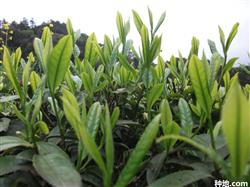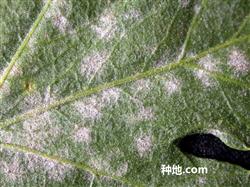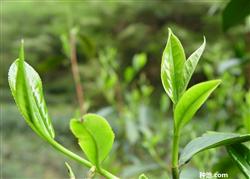What should we pay attention to when planting pollution-free tea?

What should we pay attention to when planting pollution-free tea? Please introduce thank you for the following problems in the cultivation of pollution-free tea: 1. Strengthen the management of tea garden (1) promote the application of organic fertilizer in tea garden. Base fertilizer should be applied once in winter, sprouting fertilizer should be applied before spring tea, and relay fertilizer should be applied in time after spring tea, so as to prevent the lack of nutrition of tea trees and affect the quality of summer and autumn tea. (2) it is emphasized that timely ploughing and weeding can loosen the soil, clean the tea garden, promote the activity of aerobic bacteria-microorganisms, and decompose the content of humus, so as to help tea trees absorb effective nutrients, promote the healthy growth of tea trees, and enhance the stress resistance of tea plants. effectively prevent the occurrence of plant diseases and insect pests. (3) make use of the rich natural conditions of firewood and grass in the edge of tea area. A tender firewood and grass is harvested before spring tea, which is covered between tea bushes or tea rows, which can not only avoid weeds, but also reduce water evaporation in the soil and prevent autumn drought. After the tender grass rotted, it can improve the soil aggregate structure and improve the fertility of the tea garden. two。 Do not use pesticides to kill pests, advocate the protection of natural enemies-beneficial insects, to achieve the goal of insect control. In the survey of tea areas, tea farmers have reported that spraying pesticides will kill beneficial insects together, and the benefit is not ideal. What is worrying is that there are different degrees of pesticide residues in the refined tea. This point should be taken seriously. 3. The application of chemical fertilizer has a strict management system in scientifically developed countries, because more application of chemical fertilizer will lead to soil consolidation and destroy soil aggregate structure. This affects the normal growth and development of tea to a certain extent, and the quality of tea will be inferior. Tea farmers who hope to re-apply chemical fertilizer should apply farm organic fertilizer to ensure the improvement of the quality of organic tea. 4. Optimize the ecological environment. Around the tea garden, attention should be paid to the protection of the ecological environment, especially the windbreak forest belt and the beneficial birds and animals in the forest in the northwest of the alpine tea garden, so as to create a good environment for tea production from different angles. 5. In strict accordance with the technical specifications of different kinds of tea, picking and manufacturing. In particular, the machinery and equipment of the primary and refining factories, as well as the sites for stacking green leaves and other raw materials, must be clean and hygienic, so as to prevent the products from being contaminated again, so as to make the finished organic tea meet the standard of good color, aroma and taste, which has won the praise of the majority of consumers for Chinese tea. Click to get more tea planting techniques click to get more flower planting techniques click to return to the farming network
- Prev

How to control chrysanthemum powdery mildew?
How to control chrysanthemum powdery mildew? Chrysanthemum powdery mildew mainly occurs on the upper leaves and buds of chrysanthemum. The surface of the affected parts is covered with a layer of gray hyphae, which forms a layer of dirty white powder from dots, causing the leaves to deform and the buds to open normally, affecting the viewing. The cause of the disease is mainly rain...
- Next

How to apply foliar fertilizer to tea leaves in summer?
How to apply foliar fertilizer to tea leaves in summer? Please introduce the high temperature in summer, often drought, tea roots by water conditions, absorption capacity is weak, root fertilization effect is poor. If foliar fertilizer is sprayed during the growth of summer tea, it can not only improve the yield of tea, but also enhance the tenderness of new buds, which is beneficial to...
Related
- Fuxing push coffee new agricultural production and marketing class: lack of small-scale processing plants
- Jujube rice field leisure farm deep ploughing Yilan for five years to create a space for organic food and play
- Nongyu Farm-A trial of organic papaya for brave women with advanced technology
- Four points for attention in the prevention and control of diseases and insect pests of edible fungi
- How to add nutrient solution to Edible Fungi
- Is there any good way to control edible fungus mites?
- Open Inoculation Technology of Edible Fungi
- Is there any clever way to use fertilizer for edible fungus in winter?
- What agents are used to kill the pathogens of edible fungi in the mushroom shed?
- Rapid drying of Edible Fungi

